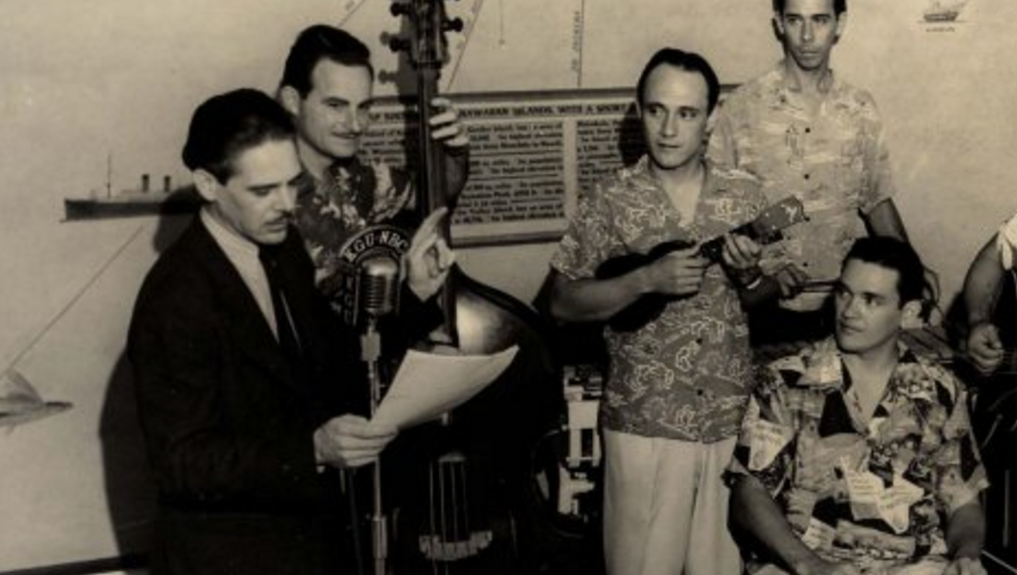The bombing of Pearl Harbor on December 7, 1941 may go down as a “surprise attack” by the Imperial Japanese navy — without a doubt it’s clearly one of the biggest, more horrific shocks America has ever had to endure — but it wasn’t at all a revelation to United States Navy officers at the time.
They had planned for such an offensive, and even had secretly enlisted prominent citizens in Honolulu to become active service members immediately if the event ever presented itself.
When it actually did on that early Hawaiian morning, one of the undercover U.S. Navy intelligence operators — a popular radio broadcaster by the name of Harry B. Soria — was ready to perform his extremely specific mission.
According to his son, who penned an eye-opening tribute recently published by The Daily Beast, Soria was assigned to take censorship control of switchboards at the local telephone company.
Right before the attack he’d been on the radio, doing his show “The Voice of Hawaii” on the NBC Red Network. Years later it was revealed that the Japanese had used the transmission to more accurately hit their target: Pearl Harbor.
More from The Daily Beast:
On the morning of Dec. 7, 1941, Dad was startled awake by the vibrations of the explosions at Pearl Harbor. Everything that he’d secretly been drilling for was suddenly now an actuality. He knew that he was now automatically resigning from KGU Radio as he was immediately activated into his U.S. Navy position. He raced to the entrance to the Mutual Telephone building in Honolulu, scampered up to his duty station, and identified himself to the two terrified radio telephone operators on duty. Dad informed the pair that beginning immediately, he would be using two sets of headsets, one on each ear, in order to listen in to each and every operator-assisted long-distance call between the Hawaiian Islands and the mainland United States for the rest of the day.
As the hours on that Day of Infamy elapsed, Dad’s training would require him to routinely lean toward one of the switchboards and disconnect the phone plug, thereby disconnecting the telephone call, and abruptly ending the conversation. The call would be terminated, if, according to the strict code that he had been taught, the content of the call was deemed inappropriate because of the discussion of now-classified details. Dad even had to disconnect calls from his former employer KGU to NBC New York.
As the hours progressed, Soria continued to keep a detailed log of the content of each and every long-distance phone call that he monitored.
Suddenly, a call came in from the White House for the governor of the Territory of Hawaii. After verifications were made, President Franklin Delano Roosevelt and Gov. Joseph Poindexter eventually were connected. Dad listened in on the entire conversation, and kept a detailed log as the two leaders discussed the ever-evolving situation, the casualties, and the latest details known. Then the subject turned to the Declaration of Martial Law. The governor followed the president’s instructions precisely and declared martial law in the Territory of Hawaii on Dec. 7, 1941. (Hawaii remained under it until April 4, 1943.)
Despite decades of prodding and inquiry, Soria never showed anyone his log of the president’s call. He told those who were interested in the incredible piece of history that he had taken an oath of secrecy, and would take the notes “to his grave.”
The Navy vet passed away in 1990, at the age of 85. Right before he died he managed to take his log book, and incinerate it.
His story, along with many others, are explored in a Smithsonian Channel program titled “THE LOST TAPES: Pearl Harbor.” It’s set to air aptly on Wednesday, December 7 at 9 p.m. EST. Below is a trailer for the show, which includes the only known recorded live news broadcast of the attack.




































